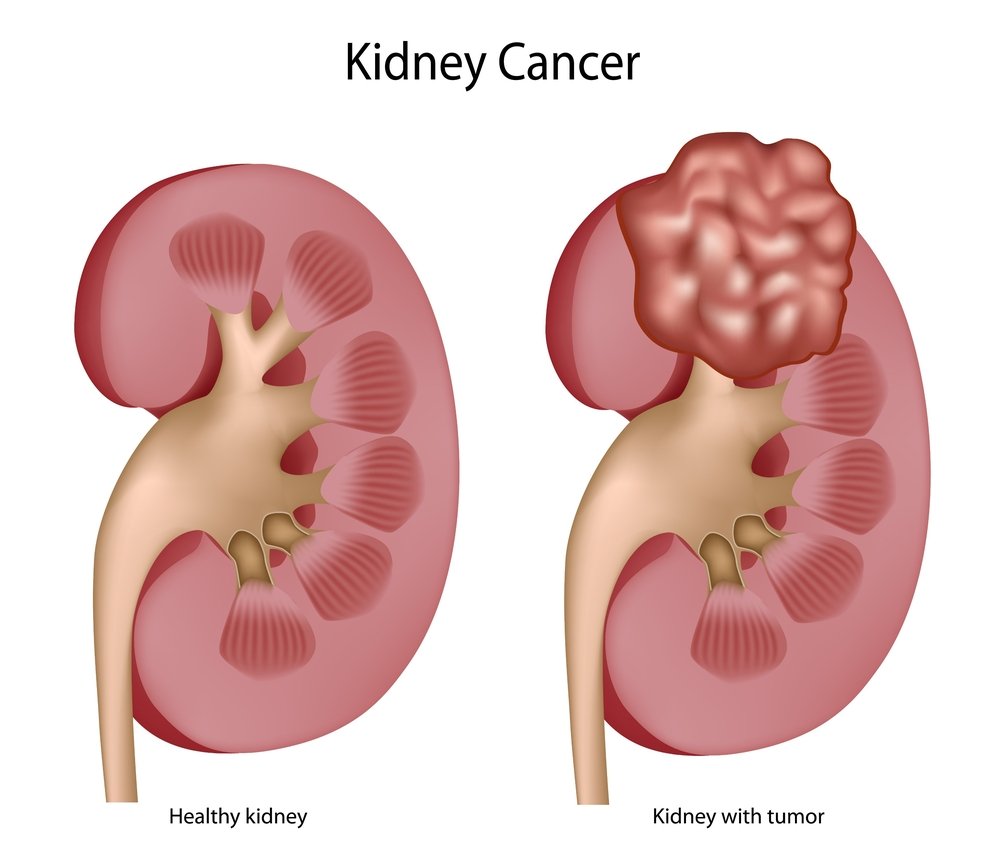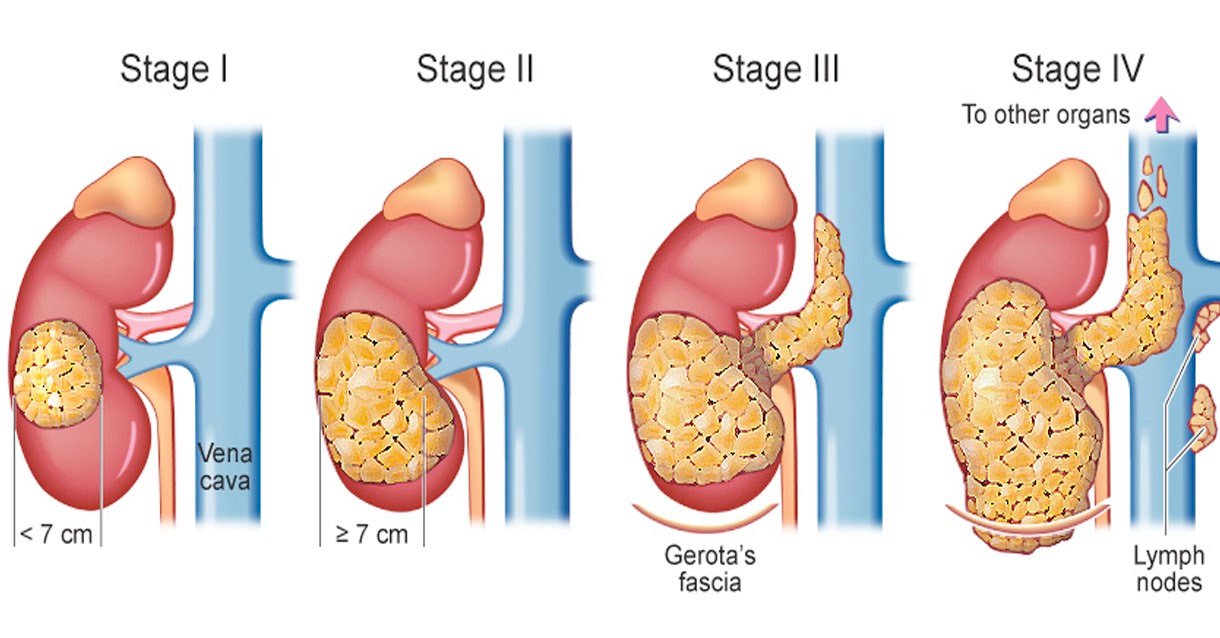
Kidney cancer is a disease that starts in the kidneys. It happens when healthy cells in one or both kidneys grow out of control and form a lump (called a tumour). Renal cell carcinoma is the most common type of kidney cancer in adults and early detection and kidney cancer treatment in Delhi, Noida, Ghaziabad can save a life. It most often begins in the lining of tiny tubes in the kidney (called “renal tubules”). The renal tubules clean your blood and make urine. Renal cell cancer often stays within the kidney, but it may spread to other parts of the body, most often the bones, lungs, or brain. There are many different types of renal cell carcinoma. The most common types are called clear-cell, chromophobe, and papillary renal cell carcinoma.
Are kidney cancer and kidney disease related?
Studies show there is a link between kidney cancer and kidney disease. Some studies show that people with kidney disease may have a higher risk of kidney cancer. On the other hand, about one-third of the 300,000 kidney cancer survivors in India have or will develop kidney disease. Some reasons are:
- Long-term dialysis. Some studies show that people on long-term dialysis have an increased risk for kidney cancer. The Urologist in Noida believes this risk is due to kidney disease rather than dialysis.
- Surgery on the kidney (called “nephrectomy”). Your risk for kidney disease is higher if all (rather than part) of the kidney must be removed due to kidney cancer treatment in Noida. If the tumour is small, it is better to remove only the tumour, but not the whole kidney. This lessens your chance of developing kidney disease. However, removing all of the kidneys is often better for your survival if the tumour is large or centrally located.
- Immunosuppressant medicines. Some anti-rejection medicines that must be taken by kidney transplant recipients to prevent rejection can increase your risk for kidney cancer. However, taking your immunosuppressant medicine is important if you have a transplant. Without it, your body will reject your new kidney.
Remember, not everyone with kidney cancer will get kidney disease. Likewise, not everyone who has kidney disease or a transplant will get kidney cancer. Ask your nephrologist in Delhi what you can do to lessen your risk.
What is kidney disease?
Your kidney’s main job is to clean waste and extra water from your blood. Having kidney disease means your kidneys are damaged and cannot do this job well. Over time, kidney disease can get worse and lead to kidney failure. Once kidneys fail, treatment with dialysis or a kidney transplant is needed to stay alive. Kidney disease can be found with a simple blood test and urine test during a routine office visit with your healthcare professional.
Kidney Cancer Treatment in Delhi
The most common kidney cancer treatment in Ghaziabad, Delhi is with surgery to remove all or part of the kidney. However, your treatment will depend on the stage of your disease, your general health, your age, and other factors. Some forms of treatment include:
Surgery.
Removing all or part of the kidney with surgery is called a nephrectomy. It is the most common kidney cancer treatment in Noida. Most people with early kidney cancer (stages I, II, and II) can be cured with surgery. There are two basic types of nephrectomies for kidney cancer:
- Partial Nephrectomy: In this procedure, the best urologist in Noida removes just the tumour or part of the kidney that has the tumour. The kidney is preserved.
- Radical Nephrectomy: In this procedure, the urologist in Ghaziabad removes the complete kidney. If needed, the surrounding tissues and lymph nodes may also be removed. Most people can live a healthy, normal life with one kidney.
Thermal ablation.
This is a kidney cancer treatment in Ghaziabad that kills the tumour by burning or freezing it. The most common types of thermal ablation are radiofrequency ablation (burning) or cryoablation (freezing). It is used mostly in people with small tumours who are not good candidates for surgery.
Active surveillance.
In some cases, a small tumour (less than 4 centimetres) can be closely watched to see if it grows. This is called “active surveillance.” Many small tumours grow slowly and not all kidney tumours require surgery. Some actually behave like non-cancerous tumours. This may be a good option if you are elderly, frail, or have multiple health problems like diabetes, heart disease, and cancer. It is rarely recommended for people who are healthy and young. You will need careful monitoring with regular imaging and laboratory work. Be sure to consult an experienced kidney cancer specialist in Noida, usually a urologist.

Medical treatment.
For people with advanced kidney cancer that has spread to other parts of the body, kidney cancer treatment in Ghaziabad with a drug may be recommended along with surgery, or instead of surgery. Some of these drugs are given to you like a pill that you take by mouth; others are given as an injection. Much progress has been made in recent years, and people with advanced kidney cancer are living much longer than ten years ago. The types of drugs that are most often used for advanced kidney cancer are:
- Immunotherapy. This is a form of treatment that uses the body’s own natural ability (immune system) to stop or slow the growth of cancer cells. Unfortunately, many of these drugs have serious side effects.
- Anti-angiogenic therapies. This is a class of medicines that reduce the blood supply to the tumour, slowing or stopping the growth of the tumour.
- Targeted therapies. This is a class of medicines that directly inhibit the growth of cancer. Targeted therapies cannot cure advanced cancer but they may allow you to live longer and have fewer symptoms.
- Checkpoint inhibitors. This new class of drugs works with the body’s immune system to identify and kill cancer cells.
What about traditional chemotherapy and radiation?
Traditional chemotherapy and radiation have not been shown to do a good job of treating most forms of kidney cancer.
How do I know which treatment is best for my stage of cancer?
You should discuss all your treatment options with your medical team. Your medical team may include:
- A urologist (specialist in diseases of the urinary system)
- Oncologist (cancer specialist)
- A radiation oncologist (specialist in treating cancer with radiation)
- A nephrologist (kidney doctor)
- An oncology nurse, social worker, and other healthcare professionals
Nutrition during kidney cancer treatment in Delhi
It is important to eat well for good nutrition during kidney cancer treatment in Delhi. Good nutrition means getting enough calories and nutrients to help prevent weight loss and regain strength. Patients who eat well often feel better and have more energy.
Some people find it hard to eat well during treatment. This is because their treatment may cause them to lose their appetite or have side effects like nausea, vomiting or mouth sores, which can make eating difficult. For some people, food tastes different. Others may not feel like eating because they feel uncomfortable or tired.
